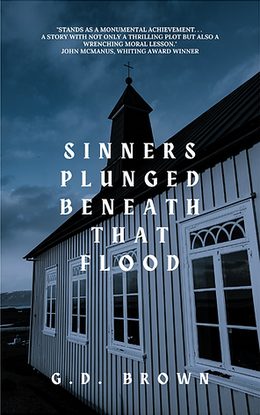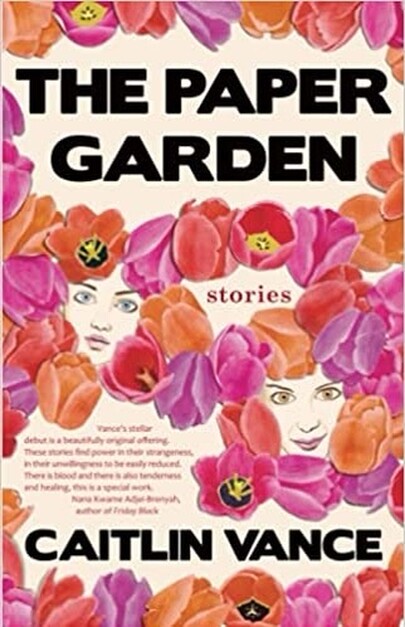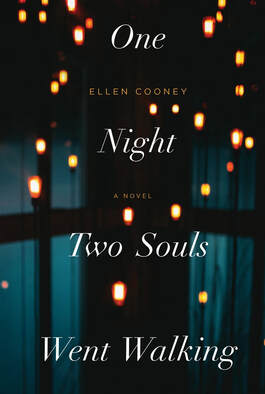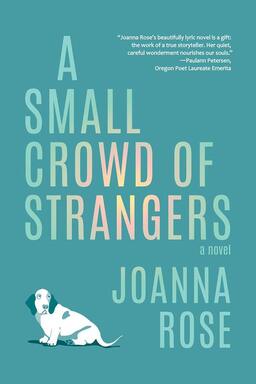G.D. Brown’s Sinners Plunged Beneath that Flood is set in the dreary backdrop of a small Oklahoma town of Mayes County in the autumn of 1998—given life by the tantalizing group of characters who are thrust into solving this small town’s disappearances and other strange happenings.
In the opening lines of Sinners Plunged Beneath that Flood, Brown plants seeds into the reader’s mind by placing them in media res, teasing them with a glimpse into the characters, setting, and plot: “The fall of Jenn's senior year of high school, she learned that a person could be missing without having been gone for 48 hours, among other things. The leaves were brown and crunchy then, shriveled letters from the summer sun to warn of the coming cold” (1). In just the first few opening lines, Brown has the reader asking innumerable questions - those that can only be answered by delving deeper into the wayward world he builds throughout the novel.
0 Comments
Caitlin Vance’s debut short story collection simultaneously stuns and alarms audiences. The Paper Garden’s stories are separate pieces of fiction that instantly draw the reader into their unique and memorable world. The stories range from children’s experiences comprehending the world around them, realistic queer romances, reimagined biblical passages, and stories blanketed in a fresh take on mental illnesses. Where Vance truly shines is utilizing her obscure yet easily understood metaphors, and her ability to transform her character’s voices into meaning that embodies each reader's unique circumstance. Regardless of some of Vance’s collection being centered in a fantastical version of reality, she also utilizes her writing to make light of undeniable truths about religion, relationships, gender, love, and societal norms. What Vance is truly putting forth through her writing is the idea that nothing should be taken at face value, and everything should be questioned for its supposed authority and validity.
“What is a soul?” In the beginning of Ellen Cooney’s One Night Two Souls Went Walking, the narrator, a hospital chaplain, brings our attention to this curiosity and, throughout the novel, explores situations that shed light on this inquiry as she interacts with her patients and coworkers in the medical center. As Cooney takes us through the young chaplain’s journey on her night-shift rounds, the reader takes a look at some of the hypotheses to that very question: What is a soul? One Night Two Souls Went Walking is written in a diary-entry-esque form where the narrator expresses herself in a straightforward, conversational manner. At times, this style of writing was difficult to understand, causing me to go back and reread a sentence or phrase; but it gave the narrator an authenticity that felt natural in speech. Each chapter is written like its own short story; most chapters, specifically the ones in the beginning of the book, have the ability to stand on their own and give potential readers a gist of what the book is about.
What do you do when your long-term boyfriend’s dad might be dying? Well, you get married quick so he can make it, of course. You were already headed in that direction—I mean, you’re practically living together as it is. What harm could it do? He’s a nice guy, he just has a few quirks, but nothing you can’t handle. I’m sure the Catholic thing won’t come up much.
Joanna Rose’s novel, A Small Crowd of Strangers, asks and answers the age-old question: “What happens if I marry the wrong person?” Rose paints a quaint life for Pattianne Anthony—a small town librarian with a casual sex life, a smoking habit, and a family that communicates with a series of unspoken words, if they communicate at all. All of that changes when she meets Michael Bryn, the choir boy who can do no wrong. Rose takes us on a spiritual journey with Pattianne as we begin to see that sometimes religion and identity can become one and the same. |
Archives
July 2024
Categories
All
|
|
Glassworks is a publication of Rowan University's Master of Arts in Writing 260 Victoria Street • Glassboro, New Jersey 08028 [email protected] |
All Content on this Site (c) 2024 Glassworks
|





 RSS Feed
RSS Feed
